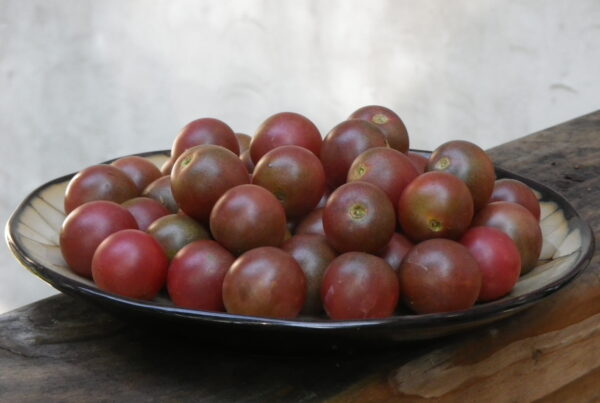Update on Federal Organic Research Bills:
Strengthening Organic Agriculture Research (SOAR) in the House
Strengthening Organic Research (SOR) Act in the Senate
Members of Congress are introducing new legislation to expand USDA funding for organic research. In the House, Representatives Dan Newhouse (R-WA), Jimmy Panetta (D-CA), and Chellie Pingree (D-ME) introduced the Strengthening Organic Agriculture Research (SOAR) Act back in April of this year. The bill’s key provisions include:
- Increases mandatory funding for the Organic Research and Extension Initiative (OREI) by $10 million each year to reach $100 million in 2018.
- Authorizes funding for the Researching Transition to Organic Program (formerly the Organic Transitions program or ORG) at $10 million per year during 2024-26 and $20 million in 2027-28.
- Doubles funding for the Organic Data Initiative and charges the USDA Economic Research Service to conduct a comprehensive analysis of socio-economic benefits of organic agriculture.
On the Senate side, Senator John Fetterman (D-PA) continues to lead the charge, persevering through some delays, now with the goal of reintroducing a renamed companion bill, the Strengthening Organic Research (SOR) Act (no longer the “CORN Act”).
Take Action:
At this time, we are seeking to get as many additional Representatives to co-sponsor the SOAR Act in the House as we can. With bipartisan lead sponsors, the House Bill should have broad appeal in that chamber. Representative Abigail Spanberger (D-7th) serves on the House Agriculture Committee has been a strong champion for organic and regenerative agriculture, and is likely to be interested in co-sponsoring the SOAR Act. Her office phone number is 202-225-2815. You can also email her staff person for agriculture, Isabel Coughlin at Isabel.Coughlin@mail.house.gov, or staffer Bonnie Krenz Bonnie.Krenz@mail.house.gov, who works on climate and environment.
For the time being, hold off on contacting our Senators regarding the SOR Act, until it is formally introduced. I trust that I will be able to share an announcement regarding SOR Act in the June e-newsletter. In the meantime, check the NSAC website for updates.
Still seeking co-sponsors for Climate-in-Agriculture Bill:
Agriculture Resilience Act Introduced March 28
Let’s get our whole Virginia delegation on board!
Representative Chellie Pingree (D-ME) and Senator Martin Heinrich (D-NM) reintroduced the Agriculture Resilience Act (ARA, H.R. 1840 and S. 1016) in both chambers of Congress on March 28. Like its earlier version introduced into the last Congress in 2021, this is a comprehensive piece of legislation designed to help farmers faced with climate disruption and make US agriculture truly climate-friendly and climate-resilient. See this section-by-section summary of the ARA.
The ARA is a “marker bill” meaning that the goal is not to pass it into law as a stand-alone, but to integrate its key provisions into the 2023 Farm Bill, now in process in Congress.
This year’s ARA has been improved in several ways:
- Adding another statutory goal for USDA REE: “Develop food systems that are healthful, sustainable, equitable, and resilient to extreme weather and other impacts of climate change and other potential intersecting global and national disruptions.”
- Coordinate Climate Hubs and LTAR for enhanced efficacy and information sharing.
- Increased emphasis on agroforestry and perennial plantings in conservation programs.
Now is the time to get as many co-sponsors in both Senate and House to sign onto the ARA. The more cosponsors on ARA, the more likely we will see substantial investments in climate-related research, technical assistance, conservation, and rural development in the 2023 Farm Bill.
Here in Virginia, Reps. Donald Beyer (D-8th), Gerald Connolly (D-11th) and Rep. Abigail Spanberger (D-7th) are co-sponsors for the ARA. Virginia’s Senators, Tim Kaine and Mark Warner, are strong conservation advocates and might be willing to co-sponsor the ARA if they hear from many of us how important it is. Bipartisan support may be a longer shot, yet it is worth asking your Representative to co-sponsor the ARA, regardless of their party affiliation.
What you can do
- If you are in the districts of Reps. Spanberger, Rep. Connolly, or Rep Beyer call or email to thank them for co-sponsoring the ARA.
- If you are in any other district, urge your Representative to cosponsor the ARA. Tell him/her how climate change has affected you, your farm, or your community, and how the ARA or any of its key provisions will help.
- Call or email each of our Senators to ask them to co-sponsor the ARA. For Senator Mark Warner, call 202-224-2023 or email Taylor Durbin, Legislative Correspondent at Taylor_Durbin@warner.senate.gov. For Senator Tim Kaine, call 202-224-4024 or email Jahnavi Patel, Legislative Correspondent at Jahnavi_patel@kaine.senate.gov.
House Agricultural Appropriations Cuts Would Undermine Our Farmers
Proposal slashes discretionary funding for critical programs and offices
Last week, the House Agriculture Appropriations Subcommittee issued their funding proposal for discretionary programs and USDA offices for fiscal year (FY) 2024. The subcommittee seeks to slash USDA discretionary funding by some 30% (more than $8 billion) compared to funding for FY 2023. Especially hard hit are the Offices of Tribal Relations (57% cut), Undersecretary of Rural Development (51%), Undersecretary of Marketing and Regulatory Programs (51%), Undersecretary of Farm Production and Conservation (48%), and Office of Civil Rights (38%). Even worse, the proposal eliminates funding for the highly effective Regional Climate Hubs, other climate change research, and various USDA racial equity initiatives including the NRCS conservation equity agreements.
Thankfully, the Senate Agriculture Appropriations Subcommittee will undoubtedly come up with a better proposal and will do its work in June. The two chambers’ Appropriations bills will need to be negotiated into a final bill to be passed by both Houses and submitted for Presidential signature. See NSAC blog on House Ag Approps for more on this worrisome situation.
US EPA Funding for Climate Pollution Reduction Plans
Virginia participates.
We need to get regenerative agriculture into the State plan
Early this year, the US Environmental Protection Agency (EPA) invited States, Tribes and municipalities to develop plans for reducing greenhouse gas emissions, and all but four States have announced their intention to participate in the program. The plans must be submitted by March of 2024, and the EPA will disburse a total of $4.6 billion to help States, Tribes and municipalities carry out their plans. The Virginia Department of Environmental Quality submitted its notice of intention to participate (NIOP) to EPA in March of this year.
This could be a vital opportunity for us to direct the Virginia DEQ to support climate friendly agricultural systems and practices – organic, permaculture, agroforestry, advanced grazing management, etc – as part of their plans for reducing GHG emissions. If you are interested in taking an active part in engaging with Virginia DEQ as the Department develops its plan, let me (Mark Schonbeck) know – schonbeckmark@gmail.com.
Grazing Lands Conservation Initiative (GLCI)
$12 million awarded for 49 projects nationwide
In April, the USDA announced awards for 49 regenerative and climate-friendly grazing educational, technical assistance, and outreach endeavors across the US. This is the first time since 2009 that the GLCI has received funding and has been able to support farmers’ groups, land grant universities, and other entities to provide this vital service to the nation’s livestock producers. Supporting Black, Indigenous, and other minority farmers and ranchers is a strong theme for this year’s GLCI.
Awardees include the Virginia Forage and Grassland Council (VFGC), Inc., for a program entitled Knowledge, Technical Support, and Mentorships to Improve Grazing Management and Conservation on Virginia Farms: A Comprehensive Approach to Reach Established and Underserved Audiences. The endeavor is coordinated by Matthew Booher at Virginia Tech., email mrbooher@vt.edu. Activities include expanding the VFGC’s grazing mentorship program, technical assistance in forage renovation and grazing plans, and schools, workshops, and conferences on grazing, resource conservation, and pasture management.
The National Sustainable Agriculture Coalition (NSAC) has long advocated for expanded funding for GLCI, which will play a critical role in making US agriculture more climate friendly and climate resilient. See the NSAC blog on GLCI for more information.
Why Congress Should Mandate a Farm Credit Grant Program
NSAC blog post on an idea whose time has come
The National Sustainable Agriculture Coalition (NSAC)’s 2023 Farm Bill Platform includes a proposal to require the Farm Credit System (FCS) to invest 15% of its net profits in supporting underserved producers and food system enterprises. The FCS is a “government sponsored enterprise” (GSE) similar to Fannie Mae and Freddie Mac housing finance services, both of which already devote a percentage of annual profits to helping low-income families access affordable housing.
FCS grant funding could help small-scale, new, or underserved producers purchase farmland, support adoption of climate-friendly soil health practices, promote local and regional food systems, and greatly expand several existing programs that provide education and assistance in farm credit and financing. See the blog post on farm credit grants for more.
Historical Perspectives on Food System Transformation
Blog post by NSAC Grassroots Fellow Anthony Singh-Reynoso
Climate friendly and soil conserving agriculture, economically viable farming, and social and racial justice are inextricably linked, which is why racial and social equity now receive as much attention in NSAC meetings as soil health, water quality, and nitty gritty farm economics. Check out this eloquent essay with three key case studies on social aspects of building a truly sustainable agricultural and food system that places people, nature, and global well-being ahead of corporate profits.






